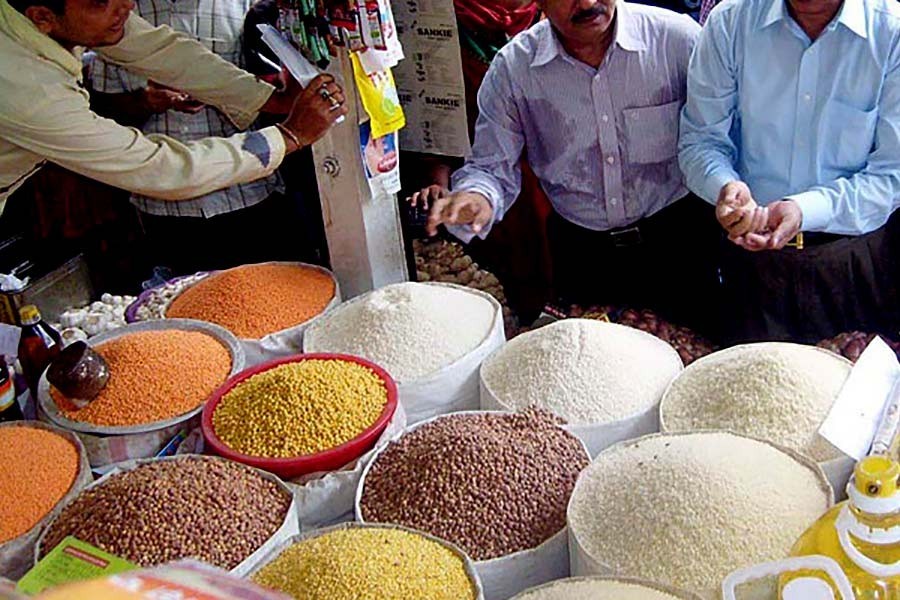The spiralling of prices of ingredients required for preparing some popular dishes a couple of weeks before the start of Holy Ramzan is a common feature in the country. This year the price hike of main food items has already crippled the low-income people in the country, leave alone those of the ingredients for preparing Iftar and Sehri items. With the queues behind the Trading Corporation of Bangladesh (TCB) trucks, that sell items at lower prices, getting longer, the plight of the low-income people is more than evident. The holy month of fasting is a little less than a fortnight away. Now the volatile market is giving them a nightmarish time. To the devout Muslims, the month of Ramzan couldn't have come at a worse time. Although the country, especially its urban points, is not passing through any phase of 'food crisis', the lower and lower-middle classes in the cities are passing through a crisis period.
Government policymakers, the economic think tanks and consumer rights groups are equally worried over a gloomy turn of the events. According to experts, if the already over two-month-long shortages of rice, pulses, edible oil etc show signs of persisting even after Ramzan, the authorities had better start planning aggressive strategies to confront that situation. Preparations to cope with a brewing problem ought to start before it goes out of control. This is plain truth. Fool-proof preemptive steps brook no delay. The present scarcity of rice and the necessary cooking items is multi-faceted. Market watchers blame manipulated low supply of commodities. Moreover, sudden increase in demand in the post-pandemic times, as well as the domino effect of the Ukraine war, has also aggravated the situation in the international market. It is the unscrupulous business syndicates which make the matter worse. These elements have been seen taking recourse to pretexts like price increase of raw materials, rising cost of transportation etc while increasing the prices of essentials. Most of these are lame excuses because no commodity can register abnormal price hike immediately after the war in Ukraine starts.
In such market volatility, the launching of open-market sale (OMS) of rice at fair prices earlier and the current sale of essentials like cooking oil at reduced rates have been welcomed by the low-income people. These bailout steps, kept reserved for adverse times, however, are stop-gap remedies. Their impact on the rundown consumers also doesn't last long. For the government to enable the citizens to enjoy the benefits of its market-fixing measures, it needs to embark on long-term programmes. The modern definition of market views the controlling activities as oxymoronic. They have been replaced by strict monitoring and supervision. All these measures prove ineffective because they lack the sense of purpose and seriousness.
The present messy situation plaguing the market is most likely to linger. It is because the adverse impact of exorbitant prices has affected almost every segment of the retail markets. They include everything from meat, fishes, vegetables, sugar, flour, eggs to even milk. Against this backdrop, the introduction of 'family cards' for 10 million people may be of help but a family needs more items than the ones they will receive at subsidised rates.


